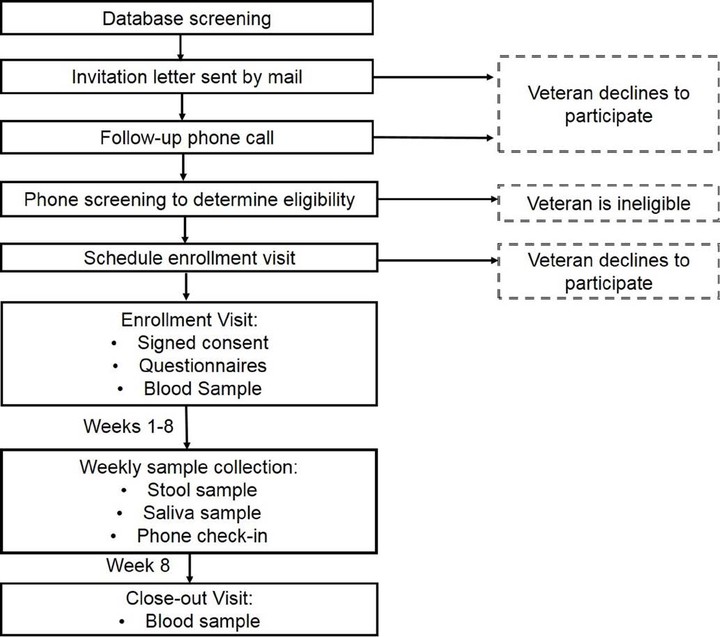Characterising the gut microbiome in veterans with Gulf War Illness: a protocol for a longitudinal, prospective cohort study

Abstract
INTRODUCTION: Approximately 25%-35% of the 1991 Gulf War Veteran population report symptoms consistent with Gulf War Illness (GWI), a chronic, multi-symptom illness characterised by fatigue, pain, irritable bowel syndrome and problems with cognitive function. GWI is a disabling problem for Gulf War Veterans, and there remains a critical need to identify innovative, novel therapies.Gut microbiota perturbation plays a key role in the symptomatology of other chronic multi-symptom illnesses, including myalgic encephalomyelitis/chronic fatigue syndrome (ME/CFS). Given similarities between ME/CFS and GWI and the presence of gastrointestinal disorders in GWI patients, Veterans with GWI may also have gut abnormalities like those seen with ME/CFS. In this longitudinal cohort study, we are comparing the diversity (structure) and the metagenomes (function) of the gut microbiome between Gulf War Veterans with and without GWI. If we find differences in Veterans with GWI, the microbiome could be a target for therapeutic intervention to alleviate GWI symptoms. METHODS AND ANALYSIS: Participants answer questions about diet, exercise and lifestyle factors. Participants also complete a questionnaire (based on the Kansas case definition of GWI) regarding their medical history and symptoms; we use this questionnaire to group participants into GWI versus healthy control cohorts. We plan to enrol 52 deployed Gulf War Veterans: 26 with GWI and 26 healthy controls. Participants provide stool and saliva samples weekly for an 8-week period for microbiome analyses. Participants also provide blood samples at the beginning and end of this period, which we will use to compare measures of inflammation markers between the groups. ETHICS AND DISSEMINATION: The protocol was approved by the University of Wisconsin-Madison Health Sciences Institutional Review Board and the William S. Middleton Memorial Veterans Hospital Research and Development Committee. Results of this study will be submitted for publication in a peer-reviewed journal.